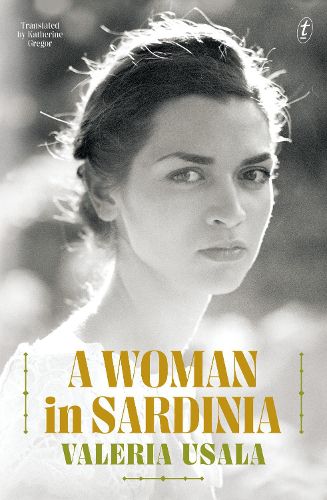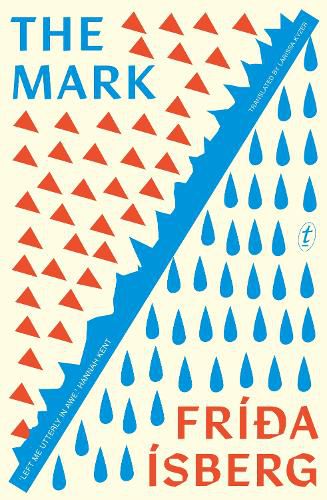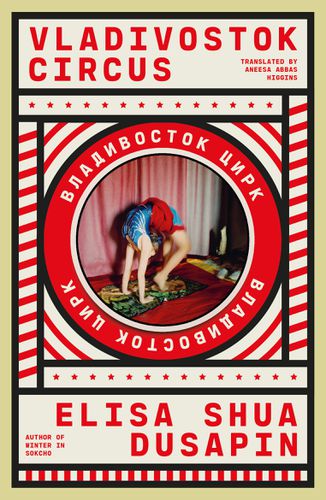This month we're reading fiction translated from: Swedish, Japanese, Italian, Icelandic and French!
Antiquity by Hanna Johansson (translated from Swedish by Kira Josefsson)
Antiquity follows its unnamed narrator, a lonely woman in her thirties who becomes enamoured of a chic older artist, Helena, after interviewing her for a magazine. Helena invites the narrator to join her in the Greek city of Ermoupoli where she summers with her teenage daughter Olga. At first an object of jealousy, Olga morphs into an object of desire as the pull of Helena is transposed onto her daughter and the prospect of becoming someone's first, if perverse, lover.
Elegant, slippery, and provocative, it is a queer Lolita story by prize-winning Swedish author Hanna Johansson – a story of desire, power, obsession, observation, and taboo.
Read our staff review here.
A Perfect Day to be Alone by Nanae Aoyama (translated from Japanese by Jesse Kirkwood)
When her mother emigrates to China for work, twenty-year-old Chizu moves in with 71-year-old Ginko, an eccentric distant relative, taking a room in her ramshackle Tokyo home, with its two resident cats and the persistent rattle of passing trains.
Living their lives in imperfect symmetry, they establish an uneasy alliance, stress tested by Chizu's flashes of youthful spite. As the four seasons pass, Chizu navigates a series of tedious part-time jobs and unsatisfying relationships, before eventually finding her feet and salvaging a fierce independence from her solitude.
A Woman in Sardinia by Valeria Usala (translated from Italian by Katherine Gregor)
In this striking debut, based on a true story, Valeria Usala bears witness to an age-old story of violence against women and takes us into the heart of rural Sardinia, where superstitions and cruelty coexist with the joys and companionship of a tight-knit community.
Teresa runs a shop and a tavern. But not even the family she has created with the man she loves can protect her from the malicious gossip of jealous locals, who are threatened by her independence. Her own mother, Maria, was made an outcast, and now Teresa is in turn forsaken by the villagers. Will she pay for her success with her life? Is she like a character in Greek tragedy, whose destiny is inevitable?
The Mark by Frida Isberg (translated from Icelandic by Larissa Kyzer)
In the near future, in Reykavik society is divided about the controversial Empathy Test, which measures an individual's capacity for compassion and identifies anti-social behaviour in citizens. Two thirds of the country have undergone the test, and 'marked' themselves in an official register, open to the public. One third remains 'unmarked' and more and more private and public spaces are closing their doors to them. In two months' time, citizens face a national referendum, in which they will vote on whether the test should be mandatory or not.
Amid the rising tension and via the voices of four compelling characters we are confronted with urgent ethical dilemmas, prejudice, injustice, and private trauma. The suspense intensifies as these four individuals try to navigate a brave new world. The rules of the game have changed. What are the consequences?
Love at Six Thousand Degrees by Maki Kashimada (translated from Japanese by Haydn Trowell)
A housewife finds herself haunted by visions of a mushroom cloud. She abruptly leaves her husband and son to travel alone to the city of Nagasaki, where she soon begins an affair with a young Russian-Japanese man.
Inspired by Marguerite Duras's screenplay for "Hiroshima, Mon Amour," this novel is an undeniable demonstration of Kashimada's distinctive voice, the polish and precision of her literary style, and her dedication to plumbing the depths of her characters' psychology.
Thrilling and poised in equal measure, dealing with the travails of history, with gendered identity, and with the tension between private and public selves, Love at Six Thousand Degrees is a literary highwire act by one of the most unique voices in contemporary Japanese fiction.
Vladivostok Circus by Elisa Shua Dusapin (translated from French by Aneesa Abbas Higgins)
Nathalie arrives at the circus in Vladivostok, Russia, fresh out of fashion school in Geneva. She is there to design the costumes for a trio of artists who are due to perform one of the most dangerous acts of all – the Russian Bar.
As winter approaches, the season at Vladivostok is winding down, leaving the windy port city empty as the performers rush off to catch trains, boats, and buses home; all except the Russian bar trio and their manager. They are scheduled to perform at a festival in Ulan Ude, just before Christmas.
What ensues is an intimate and beguiling account of four people learning to work with and trust one another.








